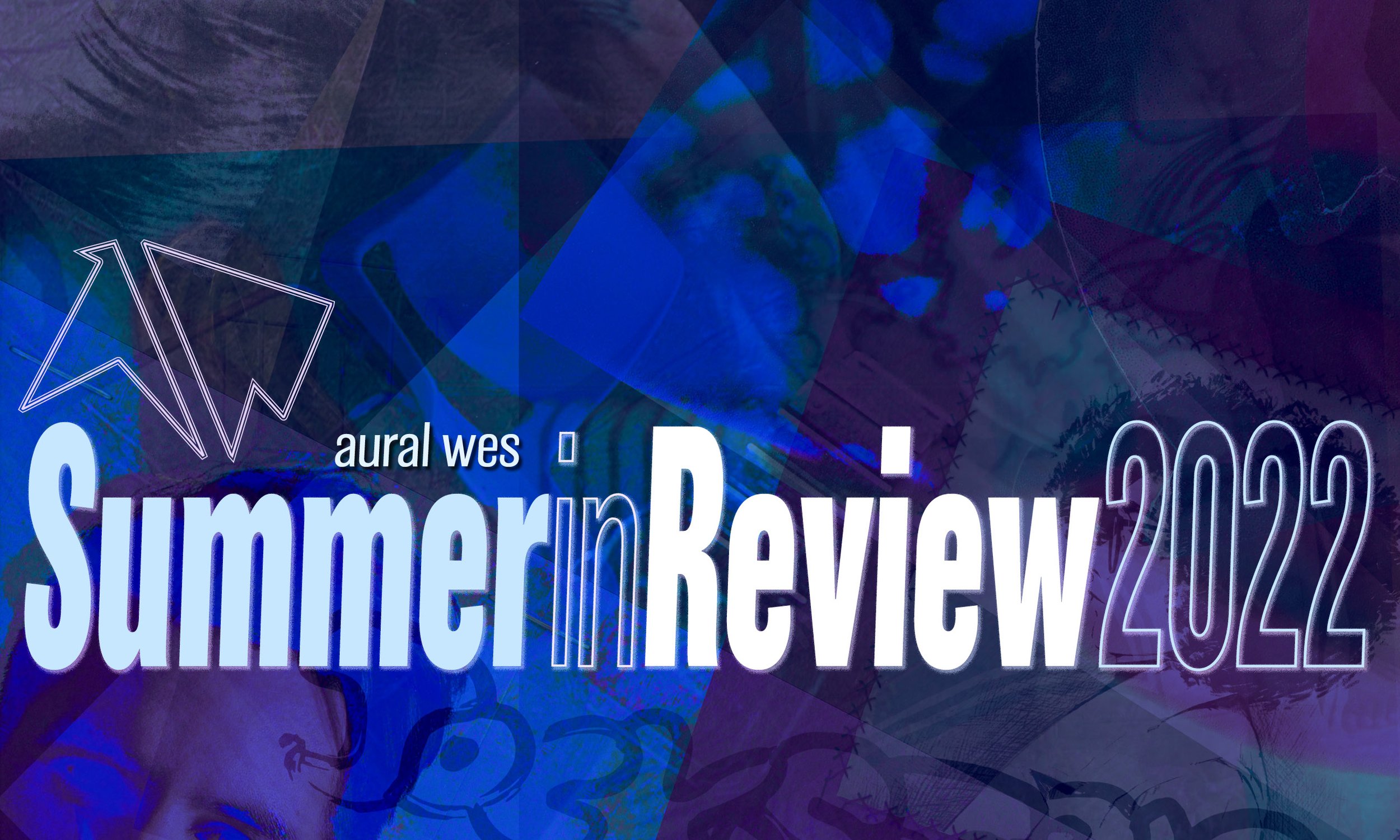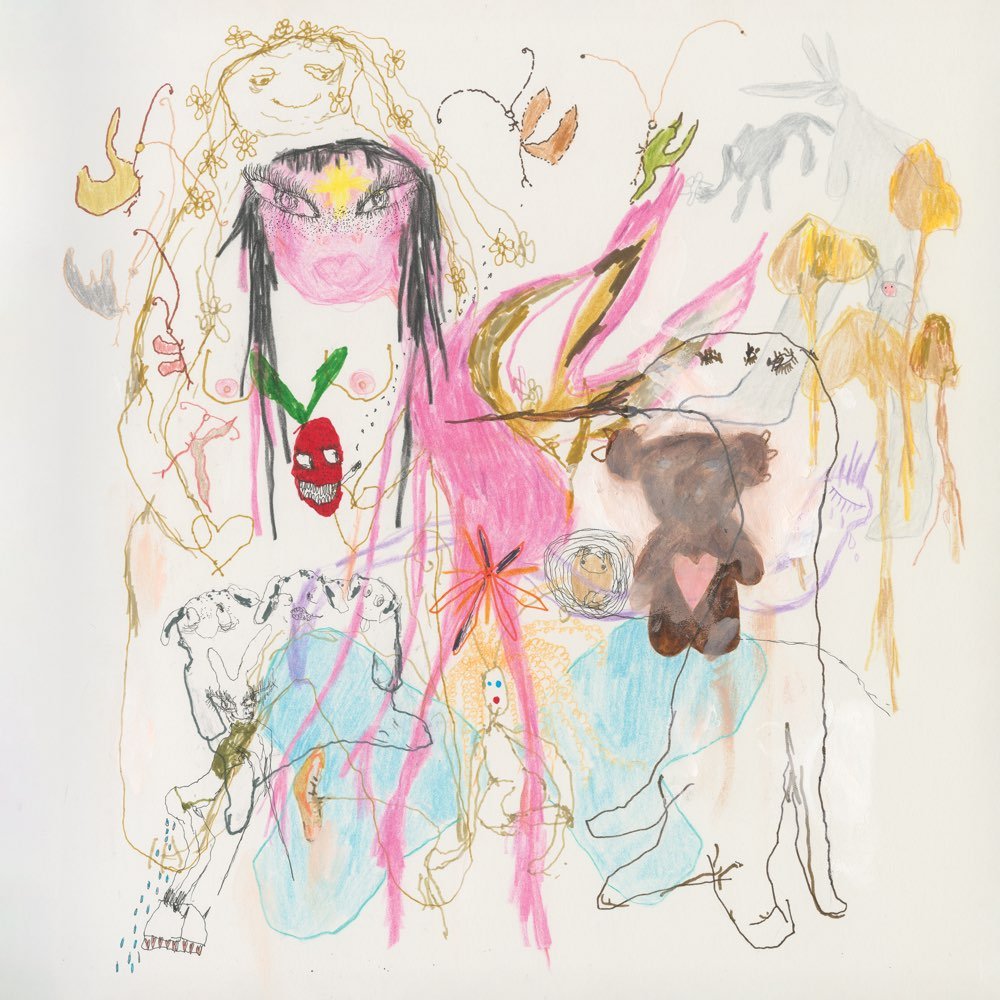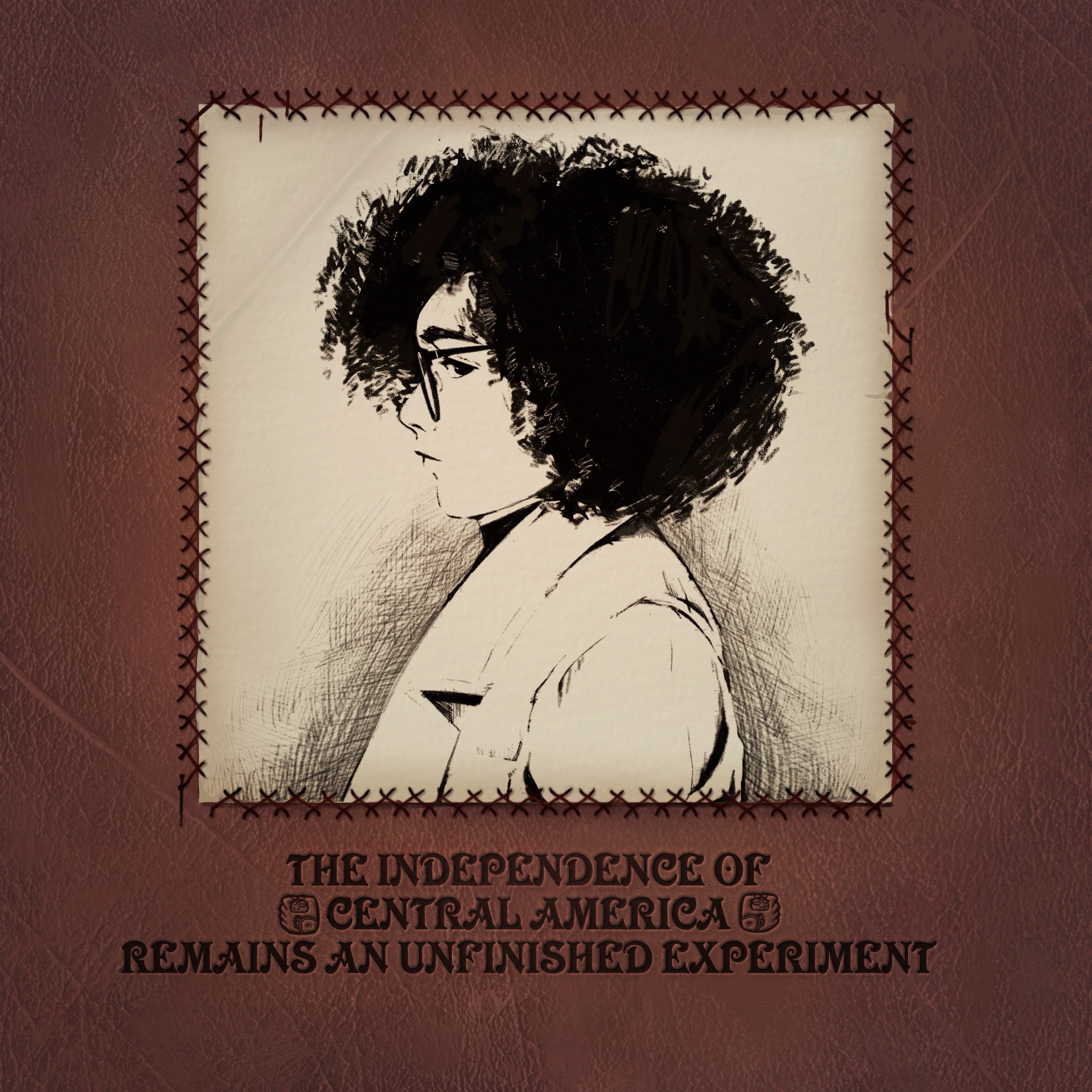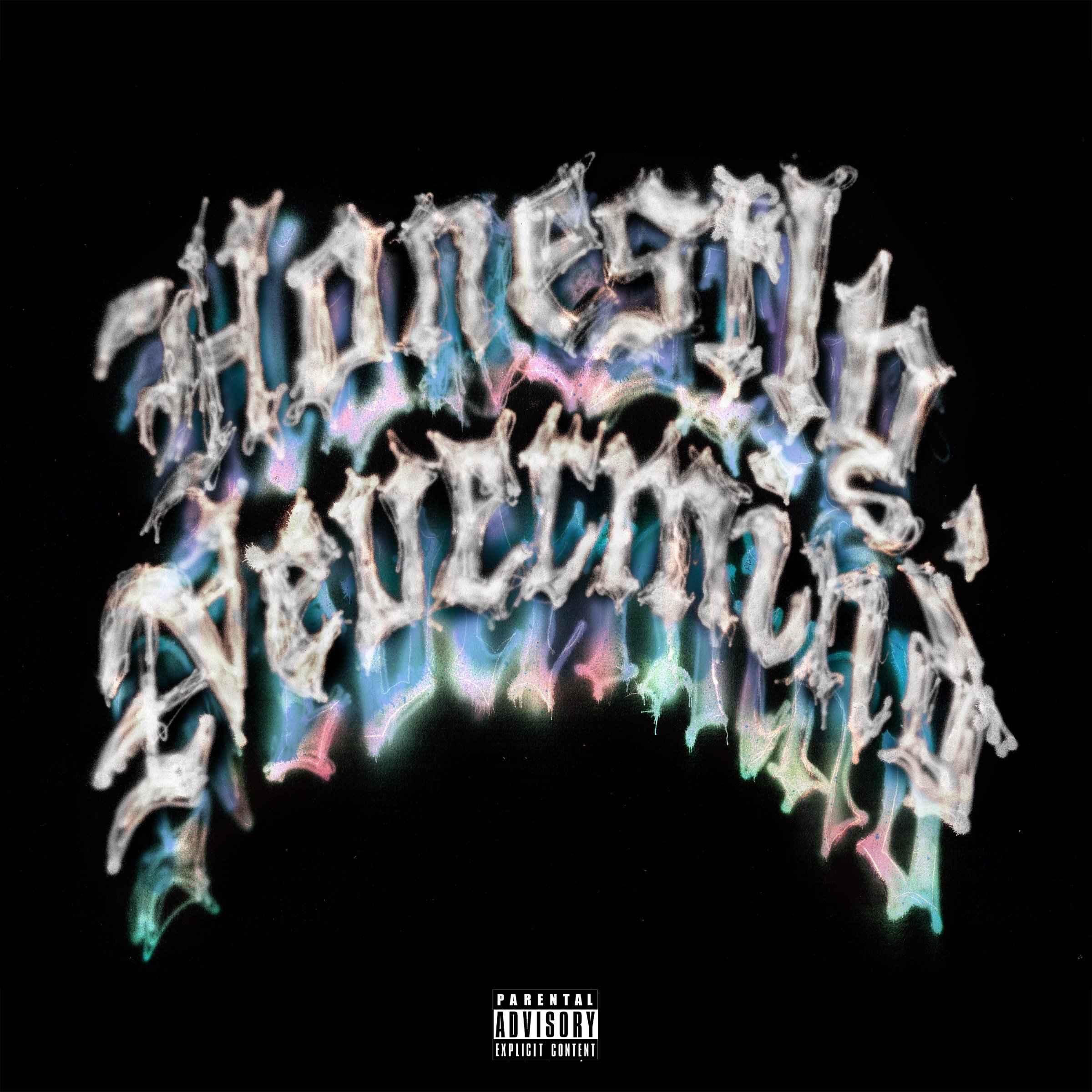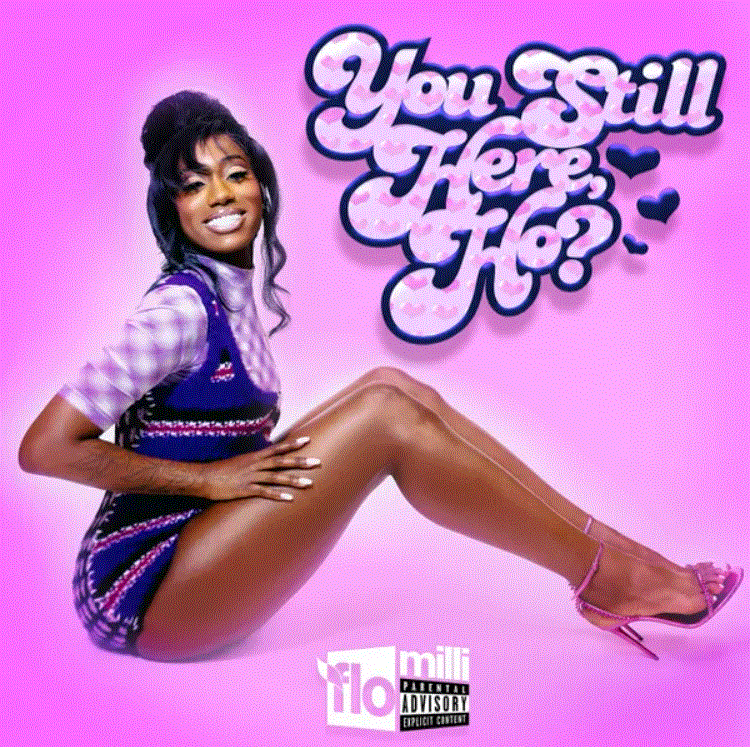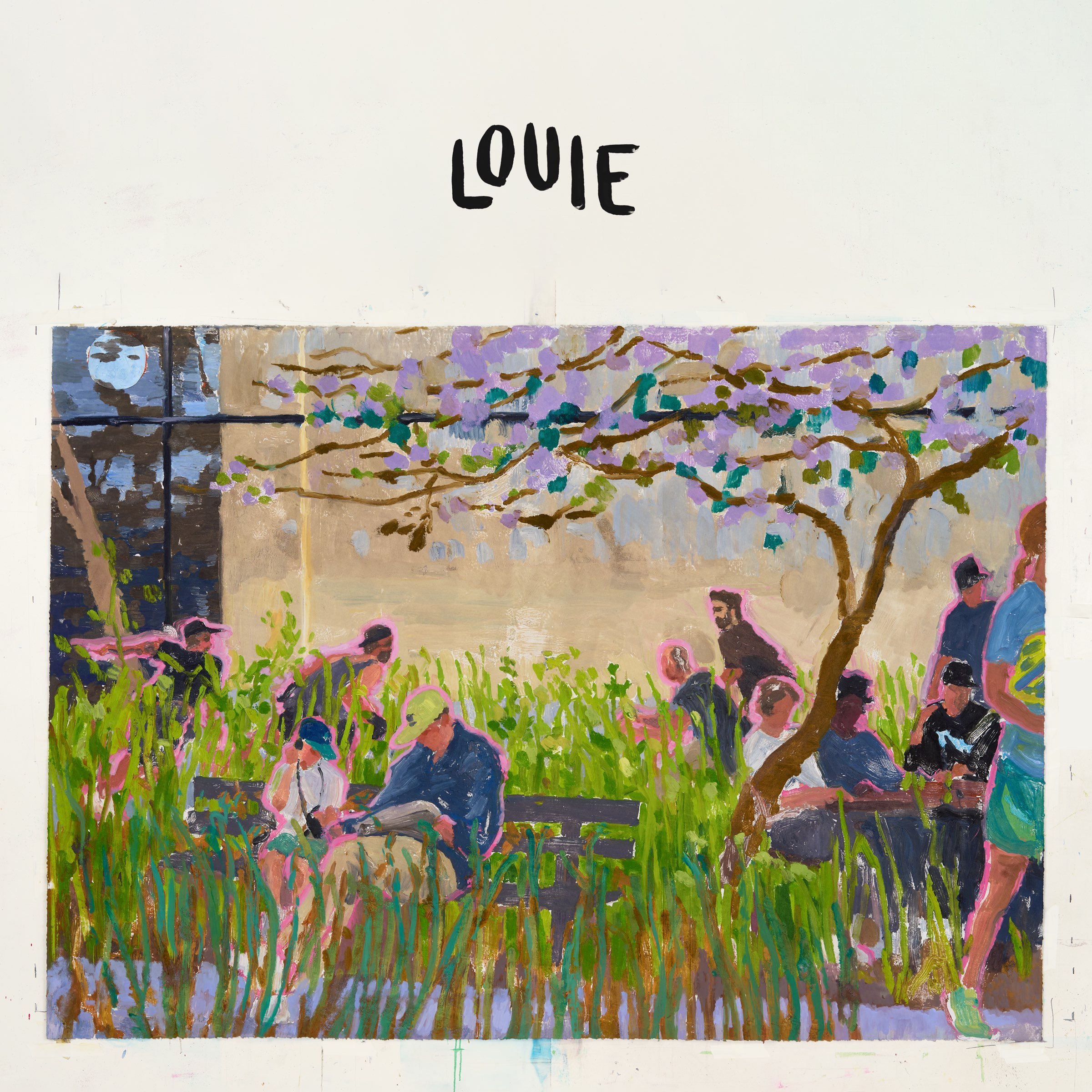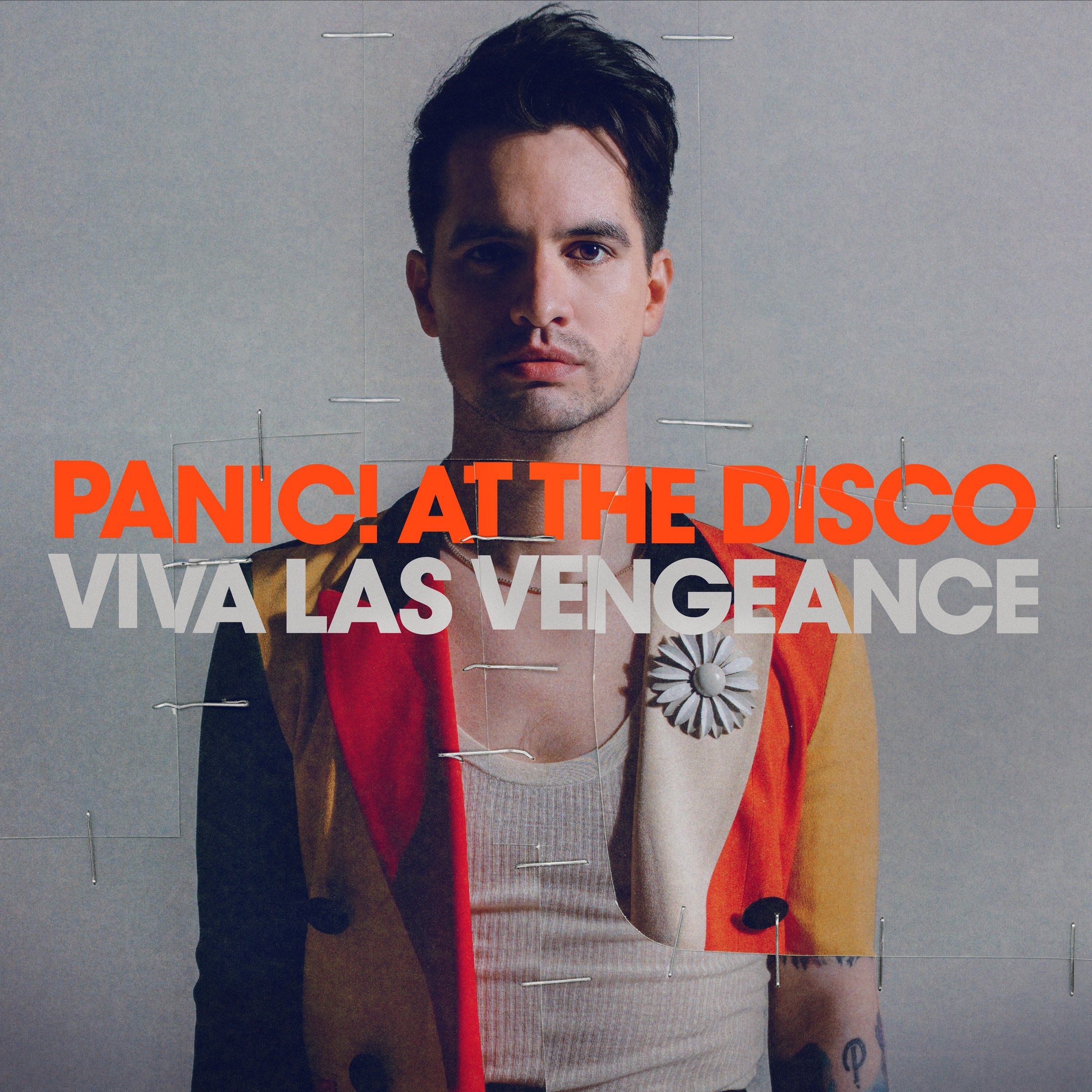Summer in Review 2022
TIME THAT TIME IT IS TIME. It’s been another weird summer in a neverending chain, but there’s been a lot of great new music over the past few months, and many an album has stuck with us through the haze. Below are twenty-one pieces about those albums; they vary drastically in taste, style, and word count, but they all share the unyielding energy and love we have for music here at Aural Wes. We hope that’s the case, anyway.
This is not the only coverage we’ll be doing of summer albums. We have some pieces that didn’t quite fit the structure of this article, and we’ll be publishing them separately very soon! That aside, please enjoy the Review Slew —>
This article is really long. Use the below gallery to navigate.
beabadoobee - Beatopia
Review by Maisie Wrubel
Beatrice Laus, professionally known as beabadoobee, released her second studio album, Beatopia, in July of 2022. Admittedly, I didn’t listen to the album until this September, but that was largely because I just was really disappointed by its lead single, “Talk,” which is the album’s more upbeat rock song. “Talk” just does not compare to “Last Day on Earth,” “Cologne,” and “He Gets Me So High,” the upbeat songs off beabadoobee’s 2021 EP Our Extended Play. Overall, this album is much more melancholy than Our Extended Play, which is why it took me a while to actually get into. Even now, though, I’m not its biggest fan. beabadoobee’s soft, fairy-like voice can only get her so far when so many of the album's songs have a similar slow, sad sound. That being said, she does do the sad sound well. “See you Soon” especially resonates with me as I adjust to college and come to terms with the fact that I’m no longer around my closest friends from home. “Lovesong” also pulled on my heartstrings and has some very moving lyrics, along with a lovely chord progression. And while “Talk” was a let-down of a rock song – wayyy too 2000s – “Don’t Get the Deal” is also upbeat, much more compelling than “Talk,” and is somewhat of a duet, though I think beabadoobee could have committed to the duet-aspect more. beabadoobee also experiments more on this album with songs like the album’s opener, “Beatopia Cultsong,” and “Pictures of Us,” which are more instrumental and include vocals that are either spoken or sung in a way that have an almost blurry effect. Overall, my biggest critique of the album, though, is that it was, in my opinion, released at the wrong time of year. To me, Beatopia is in no way a summer album. I think a late-winter (or even spring) release would have served the album better because, along with the album feeling a bit too sad to be a summer album (not that summer albums can’t be sad, I just feel it didn’t really work with this one), “You’re Here That’s the Thing,” the album’s final track, captures the feeling of winter ending and spring beginning perfectly. That being said, the album definitely has some successes, and while I found it somewhat boring at first, it definitely grew on me.
Beyoncé - RENAISSANCE
Review by Nolan Lewis
In the midst of the pandemic, many artists released what we needed most—music to take our minds out of the moment and place them in the club. Unfortunately for them, all other projects were immediately overshadowed when RENAISSANCE dropped (although Drake was able to stay afloat—see “HEATED”). Yoncé pays homage to the ultimate safe spaces, created by and for Black, Brown, queer, and trans communities, with a project chock full of the energies and sounds of her predecessors. In particular, the penultimate track “PURE/HONEY” demonstrates decades of ballroom, sampling Kevin Aviance’s “Cunty”, Moi Renee’s iconic bitch track “Miss Honey”, and featuring vocals from ball commentator Kevin JZ Prodigy. Beyond this, the album boasts a total 16 tracks with seamless transitions and no time for ballads–a first we’ve seen from her. For those who prefer the softer side of B, the closest you’ll get is “PLASTIC OFF THE SOFA”, before immediately plummeting back into the disco-infused “VIRGO’S GROOVE”. Above all, RENAISSANCE is an ode to her uncle Johnny, the man behind her earliest looks, and calls us back to the Harlem renaissance, a time and place where activism and partying found their intersection. The album introduces us to yet another facet of Beyoncé, and shows that she is not going anywhere anytime soon.
black midi - Hellfire
Review by Terry Brannigan
This summer on July 15th, post-punk band black midi released their third full-length studio album, Hellfire, on Rough Trade Records. Coming only a year after their critically-acclaimed sophomore LP Cavalcade, it felt like an unusually quick turnaround, considering that this type of music takes a village to make. And take a village this album did: far from sounding rushed or underdeveloped, this is probably the group’s densest project to date. With a novel’s worth of tongue-twister lyrics, string, horn, and percussion ensembles, and some of the highest energy I've heard in the 2020s, this album, much like its cover art, is a fractal that gets more complex the closer you listen.
Compared to Schlagenheim and Cavalcade, Hellfire is definitely a new sound for the band, as they seem to be stepping away from their post-punk roots and delving into a more progressive, art rock sound that echoes the work of King Crimson and Frank Zappa. Here we get to see them fully realize some of the orchestral and big band elements they played with on Cavalcade, with some really well-developed horn and string sections. In that vein, this album feels akin to a musical at times with its clear, focused themes and detailed storytelling.
The album opens up with the title track, Hellfire, which feels like an honest-to-god overture. It’s immediately clear that this isn’t just another black midi album. On Sugar/Tzu, the band beautifully melds a horns section into their post-punk repertoire with incredible musicianship. After this, we are blessed with a Cameron Picton vocal track: one of two on the album via Eat Men Eat - with its flamenco sound made from percussion instruments I’ve never heard of - and Still - with lap steel and acoustics providing a country-western aesthetic. Welcome to Hell is an easy favorite and contender for best track of the year with its immaculate production and more classic bm drums, bass, and guitar instrumentation. Overall, the first half of this album sets the scene of the seedy underbellies of a futuristic society obsessed with war and cheap thrills through Geordie’s ingenious, figurative, and idiom-filled poetry. The Race is About to Begin is another heavy hitter that kicks off the second half of this album following the interlude, Half Time, with a 7+ minute song (2 of which are occupied by Geordie word-vomiting rhymes at lightspeed over an avant-fusion-jazz jam sesh). This is followed by the dramatic Dangerous Liaisons, which utilizes the full dynamic range and pit instrumentals of an opera, along with some really technically complex drumming from Morgan. To round out the end of this album, Geordie gives us a beautiful ballad in the form of The Defence followed by 27 Questions, a quirky yet dramatic and surreal tune, and therefore a fitting end to a black midi album.
I would be remiss if I didn’t mention the improvement from bm’s previous albums in the vocal work. Cameron does a great job coming into his own on his respective songs, but Geordie’s the one who really stole the show for me. He’s always had a unique sound, but his vocal style historically sometimes wore on me. Not here, however. On this album, he feels much more confident in his sound and much more expressive, all while maintaining his Black Country, Les Claypool affect.
While it’s certainly hard to judge Hellfire against bm’s other albums - apples to oranges - I feel comfortable saying that this is black midi’s best album to date. I love the direction they are taking, and would be happy to hear some standalone singles (or even another full-length album) continuing to experiment and grow with this sound. I am very excited to see what the band has in store next.
Cime - The Independence of Central America Remains an Unfinished Experiment
Review [summarized] by Lily Lazar
Full review coming soon
To put this album in very short words, it’s not just a piece of music. The multimedia experience that goes along with it is incredible, and it’s clear that Monty wants you see this as both a unique artistic statement and equally a representation of their culture and how it connects to their spirituality, their gender identity and sexuality, their politics, and their artistic influences. Monty sees themself as the next person in a long line of extremely important figures. Such figures include Augusto César Sandino, Francisco Morazán, and Guillermo Anderson, but there are so many more she references both on the album and the website that accompanies it, which is a big part of the experience.
I wish I had more to say about a lot of the cultural importance of the musical characteristics of this album, but it’s not something I know as much about. Monty describes themself as a “freak folk” artist, which is a pretty fascinating and unique genre. Musically the album is incredibly well put together, “Compay”—especially that live version—is incredible. The poetry on “By the Bunches” is incredible. The tributes to Guillermo are incredibly deserved and do his work justice, Guillermo is an incredible artist and I highly recommend you listen to Monty’s upload of his last album with 15 more minutes of music that got removed from the final edition on streaming. Monty carries out all of their intertwined and nebulous intentions magnificently, and the connections between Honduran history to her own life and expressions of aspects of her identity have so many layers. “The Independence of Central America Remains an Unfinished Experiment” is one of the most awe-inspiring pieces of art, especially because of everything I’ve learned because of it. If you have the time/energy I also highly recommend you listen to it on any available streaming service, it’s also listenable and downloadable on Bandcamp for free with the lyrics listed in Spanish and English, but you can also choose to financially support Monty. In their opinion, not only do you have a moral obligation to pirate music but also to support struggling artists as long as you can. Financial instability of Honduran artists and anti-capitalism are all over the album, so this makes sense. The lyrics are all listed, along with the translations, on cime.casa and on the album’s Bandcamp page, and everything else you’d want to research is on either montycime.com or cime.casa.
The only way I feel faithful ending this review is to end the album with the same suggestion as Monty does. I won’t spoil the ending, because the effect it has if you’re not expecting it is wonderful, but the takeaway is not only that Monty wants you to be interested in the stuff she’s interested in, of course she does, who wouldn’t after pouring days (literally, multiples of 24 hours) into this masterpiece. But most importantly for yourself, or for whatever cause you’d like to dedicate your work to, the devotion she draws you in with and encourages you to exhibit yourself is intoxicating. I don’t think there’s anything I can say I’ve put the same time and dedication into, but after this experience I absolutely want to, the outcome seems to be nothing but euphoric.
Drake - Honestly, Nevermind
Review by Alexandra Taylor
Though utterly overshadowed by Beyonce’s RENAISSANCE (and for good reason), Drake’s Honestly, Nevermind is a beacon for a new era of music. With tensions rising across the country and abroad, the gap between the rich and the poor ever growing, and global mental health on the decline, the reinvestment into club music signifies a shift towards escapism. Though met with harsh criticism by internet elitists, the album is pleasantly consistent and has a great track in “Jimmy Cooks.” Neither heaven nor hell, the album exemplifies Drake’s place in the public consciousness.
To start things off on a great foot, “Jimmy Cooks” is a classic Drake banger with a welcome surprise guest of 21 Savage. It’s a return to form for Drake as the man with a big personality and smooth flow. It’s an absolute treat to hear from 21 Savage and he has not lost any skills (but I wonder about the status of his cars and garages?). The two combined make for a riveting track that is an absolute mainstay of the Drake canon. “Calling My Name” has a delectable R&B opening which transitions into a raunchy yet chill house. “Currents” is surprisingly hilarious, with a beat which incorporates a cartoonishly creaking bed and some of Drake’s worst edited vocals off the track. The songs all fit into a witty, sardonic take that elevates the album.
Flo Milli - You Still Here, Ho?
Review by Nolan Lewis
The sequel to Milli’s 2020 mixtape Ho, Why Is You Here? alludes to an Alabama girl’s dreams of living in the spotlight, something she has long-deserved. She welcomes us to a world of Y2K pop culture via an ode to reality TV—and what better way to kick the album off than with a monologue by Tiffany “New York” Pollard? While early singles “Conceited” and “PBC” feel like a disconnect from the album’s overall theme, that doesn’t make them hit any less hard. It’s the unsung hero of the project, “Bed Time”, that introduces listeners to a masterclass in pussy rap, reminiscent of artists like Lil’ Kim and Remy Ma. Speaking of the greats, where the album succeeds is Milli finding an equilibrium between showcasing her potential while paying homage to pioneers of the past (See “F.N.G.M.”, a sample of Junior M.A.F.I.A.’s “Get Money”), all while flipping off the patriarchy. Although catchy hits are harder to find in “You Still Here, Ho?” when compared to its predecessor, the album’s exploration of new genres makes it a strong body of work. Each track is unpredictably experimental, and leaves me wondering what Flo Milli has in store for us next.
Ghais Guevara - There Will Be No Super-Slave
Review by Cassandra Weigle
The bizarre string-led, various TV show sampling intro to Ghais Guevara’s mission statement There Will Be No Super-Slave sets the tone for the record as a whole: eclectic, politically charged, violent, and unashamedly tuned in to pop culture. The self produced Islamo-communist has a generational ear for sampling, which allows his witty storytelling and political insight to be delivered in the most entertaining way possible, as he demonstrates immediately with an opening three track run that would make any hip hop head raise an eyebrow. The first of these, “#FREEMIR,” is based on a drill beat layered over a wildly triumphant string sample that supplements Ghais’s commentary on the violence that broke out following the George Floyd protests in 2020, where he emphasizes the importance of direct action in order to properly combat a system designed to perpetuate white supremacy instead of symbolically bending the knee by politically engaging with little other than voting and crossing your fingers. The last of this run, “Patrisse Cullors Stole My Lunch Money,” explores similar topics, this time over a set of two beats, the latter of which is an absolutely blissful soul sample over which Ghais jokes “Glocky got a twin, I can't wait for you to meet her, You not tryna see em together like unified Korea,” this being an exemplar of one of many one liners on the record that make you stop and think, “wait, what?” Also in this camp is “Got more hits than an Andy Murray backhand,” off “This Ski Mask Ain’t for COVID,” a jarring reference to the British tennis player just a few lines after Ghais touches on issues like the marketing and fetishization of trauma in black art, all delivered over an unhinged beat that pulls from klezmer, jersey club, and sometimes both at the same time. Other tracks like album centerpiece “Face/Off” showcase Ghais delivering a story of a young man’s first murder, with a twist that interviewers have compared to M. Night Shyamalan (I think accurately), or the aptly named “I Personally Wouldn’t Have Released John McCain,” laden with Guilty Gear and Pocahontas references over yet another excellent chipmunk soul beat, which should be enough of an interesting description to check out the song in and of itself if you are at all the kind of person that this album would appeal to. Given that the lyrical content of the record deals largely in topics I am generally unqualified to write about, and am still unpacking and dissecting at the time of me writing this, I would like to bookend this mini-review here, and if anything I said here seems interesting, I implore you to give this album a shot.
Hudson Mohawke - Cry Sugar
‘Holy Shit The Guy Who Made Cbat Released An Album’
Review by Nathan Hausspiegel
It’s been hard for all of us lately. Trouble, toil, and malaise has stricken the populace of the Earth in this year of our Lord, 2022. And of the troubles that have befallen us, none cut as deep and hurt so acutely so much as the lack of fantastic new music: music to soothe our souls and to guide our hearts, music to uplift in joyous times and comfort in despairing times, music, perchance… to fornicate rhythmically to.
But lo, and rejoice! The powers that be on High have given us a blessing, a reason to go on! Yes indeed, rejoice… for the guy that made Cbat released a new album!
The guy that made Cbat (occasionally known as the experimental trap producer Hudson Mohawke or HudMo) has not released solo music in a fair amount of time, with his last non-soundtrack album of solely original material being Lantern. Between the release of Cbat and now, the guy who made Cbat has also enjoyed success with other smash hit trap singles, such as 2014’s Chimes and 2012’s Higher Ground, the latter of which co-produced with a guy who didn’t make Cbat (also known as the producer Lunice). Similar to the brilliance exhibited in the composition of Cbat, HudMo’s latest work, the 19-track Cry Sugar, is as irreverent as always, deconstructing and reimagining the paradigms of the modern-day trap and future bass genres with an effortless exuberance and an ever-present sense of humor. I haven’t said Cbat in a while. Cbat.
Luckily, for new fans drawn into the world of experimental electronic music by Cbat and looking for something else that scratches that same itch, there’s plenty to love in Cry Sugar. Diehard Cbat enjoyers would likely enjoy the track “Bow” the most, featuring a similar, delightfully off-kilter main melody, but those looking for a sensual bedroom jam devoid of distracting vocals would be disappointed here - although they do tell the listener to “shake that waist right down to the motherfucking ground”. “Intentions”, the first song past the intro, is a truly maximalist beat that explodes with in-your-face synths and rattles with distorted percussion that tickles the high-end of your headphones, and serves as one of the finest examples of the energy and ingenuity that HudMo brings into his production. It’s great - if, for some reason, you’d want to listen to something that doesn’t remind you of Cbat. The suggestive title of the track “Nork 69” implies that the guy who made Cbat is still looking out for those who want to spice up their love life with his music. And a late album sleeper hit like “Tincture”, a high-energy, rave-ready stunner featuring fast, frenetic drums, might be a fun challenge for anyone wanting to up the rate of their stroke game if Cbat’s tempo is seeming somewhat pedestrian after years of regular use.
Aside from the bangers, Cbat stans will be disappointed to learn that a handful of the songs on the album are drumless, ambient reveries that, frankly, serve no purpose in the bedroom. Offerings like “Stump” and “Ingle Nook Slumber” (the album’s closer) may be indications that HudMo is craving a change in his production style, moving away from his typical fare in order to distract listeners and get away from the worldwide fame and glory he has accrued from the massive popularity (and widespread usage 😏) of Cbat. “Lonely Days” is honestly beautiful, featuring interplay between a modulating vocal melody and a background of whining, swelling synths and powerful MIDI strings. While it may very well be my favorite song on the record, never in a million years would it hold a candle to Cbat, if only but for the entire lack of percussive rhythm in the song - something Cbat provides in droves, containing the ideal buildup, drum pattern, and tempo for synchronizing pelvic thrusts during a night of passionate lovemaking.
One might find it compelling that the Reddit post made by /u/TylerLife (which we are all doubtless familiar with by now) that revealed his strategy for using Cbat as a rough-and-ready rhythmic refrain relevant to reproduction, ripe for a romantic rendezvous turned raunchy and risqué, resulting in a round of rushed, repetitive ramming reminiscent of rambunctious rabbits, was created a mere 20 days after the release of Cry Sugar. Is the entire story a hoax, part of a conspiracy to guerrilla market the album to the widest audience possible? Sources (that I just made up) tell me yes.
Cry Sugar is, ultimately, a lot to take in. From the hour-long runtime to the surrealist and somewhat concerning album cover (what the fuck is going on there? Is that the Stay-Puft man eating a burger?), the album can sometimes feel like an assault on the senses - much like the rebuttal of the girlfriend to the guy who used Cbat during their intimate time was an assault on his dignity. The sequencing of the project definitely leaves something to be desired, and some tracks like “Behold” play into the EDM tropes of yesteryear so hard that they seem like practical jokes, which end up being about as funny as this review (i.e. hilarious if you’re me). Maybe these flaws are a sign that HudMo is losing his touch, and maybe it’s just his way of wanting to stay weird - and given his past work, I’d definitely assume the latter. Despite these flaws, I think that Cry Sugar is a good album that’s worthy of consideration, although at the end of the day, it has nowhere near the staying power of a generation-spanning, internet-encompassing, sexual synergy-boosting anthem like Cbat. For something else like that, I guess we’ll have to wait for Cbat 2.
I Prevail - TRUE POWER
Review by Raine Rosenblatt
I Prevail’s August release True Power is a veritable display of all of the elements that define the band’s signature sound. Passages featuring dotted quarter note based phrygian dominant riffs, a staple of the band, are seen in tracks such as “Fake” and “Judgement Day.” Tracks such as “There’s Fear in Letting Go” are examples of I Prevail’s signature style of buildups and drops. “Choke,” “Self Destruction,” and “Long Live the King” demonstrate that the band can still produce grooving, more technical riffs on a level of heaviness that can rival anyone’s, and “Visceral,” “Bad Things,” and “There’s Fear in Letting Go” show that the double kick driven breakdowns that first caused me to fall in love with I Prevail continue to constitute a major part of their repertoire. Continuing the trend from their 2019 release Trauma, rap sections continue to be quite prevalent; nearly every song (ex: “Self-Destruction” and “Bad Things”) features rap elements. The rap sections are one of the most distinctive elements of the feel of I Prevail; not many comparable groups employ this medium. The rap elements, combined with a strong influence of EDM and Hip-Hop in the synth and drum machine work on tracks such as “Self Destruction” and “FWYTYK,” are what lead me to constantly recommend I Prevail as a starting point for fans of more electronic styles who wish to dip their toes into the realm of modern metalcore; it often feels like I Prevail approaches metalcore with the eye of EDM and blends elements of electronic pop music seamlessly into their heavier work. (“FWYTYK” is a particularly excellent example of this accomplishment.)
The album isn’t entirely a display of the familiar, however. Several tracks display elements of new experimentation: The band is experimenting with greater metric complexity; “Self-Destruction,” “FWYTYK,” and “Choke” feature shifts between 4/4 and triplet based grooves (“FWYTYK” even featuring a breakdown in 6, a well executed first for the band. The track also features a nod to Mick Gordon’s “BFG Division” from the soundtrack of the 2016 game Doom). “Body Bag” and “Fake,” show some more uptempo punk/pop-punk influence, while “Judgement Day” contains a feel that could be likened to early thrash, a departure from the band’s mid-tempo usual. Increased use of ethereal background synths (ex: in “Deep End”), piano in “Doomed,” and even vocoder in “Closure” show the band’s greater instrumental complexity on this album. On the vocal side of the equation, while I Prevail has long included clean singing, particularly in the choruses, these sections have always felt like afterthoughts to me; I never considered clean vocals to be the band’s strength or main focus. True Power has changed that. Melodic diversity and improved range, as well as increased harmonic complexity on tracks like “The Negative,” “Bad Things,” and especially “Long Live the King” place clean vocals rightfully at the forefront of this album, a tremendous improvement from the band’s previous records. And of course, tracks like “Judgement Day,” “FWYTYK,” and “Choke” demonstrate that I Prevail continues to scream with the best of the best.
In conclusion, I Prevail’s True Power marks a strong continuation of the elements that contribute to the band’s unique sound. Hard hitting riffs, rap- and EDM-influenced sections, powerful screams, and heavy breakdowns are present in classic I Prevail fashion. In addition, new rhythmic complexity and instrumental choices show an increasing maturity as the band continues to develop itself. Finally, highly improved clean vocals and melodic sections round out this strong new offering that I Prevail has released into the modern metalcore ethos.
Jockstrap - I Love You Jennifer B
Review by Elijah Davis
Jockstrap is a duo consisting of producer Taylor Skye and vocalist/violinist Georgia Ellery. The duo’s been active since 2018, but I Love You Jennifer B is their first album release. And what a debut it is. Do you enjoy experimental pop? Then you’ll probably enjoy this album. Skye’s production is out of this world, ranging from blaring drums and loud synths, to soft guitar and violins. Ellery’s vocals are luscious and spacey, perfectly complimenting the production. The album standout is “Glasgow”, a song that starts with soft guitar playing and crescendos out into a gorgeous flurry of violin and vocal harmony. I Love You Jennifer B is a great listen, and it shows off Jockstrap’s potential in a way that makes me deeply excited for whatever comes next.
Kenny Beats - LOUIE
Review by Nathan Hausspiegel
A lot of people love Kenny Beats. The 31-year-old producer (real name Kenneth Charles Blume III) is one of the social media age’s most popular beatmakers, and he’s acquired a following that goes beyond his music. He’s embarked on collaborations with high-profile rappers like Denzel Curry and Vince Staples, episodes of his YouTube collab series The Cave routinely attain upwards of one million views, and his 300,000-plus Twitch followers tune in to watch beat battles where he either lauds or roasts viewer-submitted instrumentals. So it’s fitting that the title of his first studio album, LOUIE, is a reference to the love he gets from others: the name is a hypocorism, a pet name given to Kenny by his parents that evolved over the years and became so bastardized that it now bears no resemblance to “Kenneth” at all - something that Kenny’s father laments on the album’s opening track as “the most fucked up thing of all time”. It’s not Kenny Sr.’s only tie to the album, though; LOUIE is also a tribute to him, written and recorded after he was diagnosed with cancer in 2020.
Clearly, this life-changing event was the impetus that got Kenny to try something new. Upon the album’s announcement, Kenny stated that “[he] wouldn’t do a solo album because [he] didn’t have anything to say. Finally, [he] did… something dark turned into something beautiful.” For someone like Kenny, someone so tied to the medium of electronic instrumentals he put “Beats” in his producer alias, it can be difficult to create an album with vitality and structure. Many musicians in Kenny’s niche abandon stylistic cohesion on their records, simply bundling a bunch of loosies together as “beat tapes”. By calling LOUIE his first capital-A Album, it’s clear Kenny has intentions of making something more than the sum of its parts, and it shows. The tracks here don’t sound like a collection of throwaways, but a curated mix brimming with buoyancy and joy, markedly more mature and nuanced than any of Kenny’s previous work. “Parenthesis” overflows with a sense of life, and features some heartwarming horn harmonies; “Hold My Head” transforms a 70s soul sample with crowd-pleasingly dense 808s and snappy hi-hats; “Really Really” takes inspiration from 90s boom-bap; and “That Third Thing” employs swung grooves and jazzy neo-soul to great effect.
The love for Kenny extends to the album’s production, too. Despite the track list lacking any eye-catching feature credits, a star-studded team of musicians came together behind the scenes in a seemingly egoless way to make LOUIE. Among the more notable names in LOUIE’s liner notes are Cory Henry, Benny Sings, Mac DeMarco, slowthai, JPEGMAFIA, Omar Apollo, Dijon, Fousheé, Remi Wolf, Vince Staples, Thundercat, and BADBADNOTGOOD. Their contributions never dominate the mix, acting as the glue binding tracks together - listen to Pink Siifu’s suave adlibs on Hold My Head, a handful of ephemeral bars from JPEGMAFIA on Still, Thundercat’s bass locking down the groove on That Third Thing, or vocal melodies from Remi Wolf and Fousheé on Last Words. These little peeks into the world of Kenny’s friends and collaborators add up to the idea that he’s really doing this for the love of the music, not for the allure of the high-profile names that he’s associated with. For once, vocalists are out of the spotlight, and the skills of the producer behind it all can truly shine.
I will say that if you’re looking for a truly transcendental listening experience, you might not find it in LOUIE. Kenny Beats (true to his name) makes beats, not ballads, and he sticks with all the tropes that allow modern hip-hop production to be so loved today - fat 808s, tight drums, over-the-top sampling - which can be to his detriment in trying to create something emotional and heartfelt. But he allows sincerity to shine through in other ways, mostly by employing the voices of others. Sometimes it’s a sample, with the vocals on “Eternal” (“We live forever, we live forever”) serving as a bittersweet reminder of Kenny’s wishes for his dad. Sometimes it’s a feature, with Benny Sings quietly crooning “I keep wondering where you are” over the soft synths of “The Perch”. And sometimes it’s an old recording of younger Kenny as a guest on his dad’s radio show, one of the most heartfelt glimpses into their relationship that the album has to offer.
In summary: LOUIE is a great album. Definitely check it out if you’ve heard of Kenny, any of the artists listed in this article, or music in general.
Steve Lacy - Gemini Rights
Review by Emmett Favreau
I still remember exactly where I was when I first heard Steve Lacy. It was mid-April, and in an attempt to add a soundtrack to the vast landscapes of Ireland as I traveled with a school group, I’d put on my headphones and listen to whatever my friends were listening to at the time. Instantly I was addicted to his light voice and powerful guitar, two attributes that are everywhere on his new album, Gemini Rights. In just 35 minutes, Lacy takes the listener through a journey of love and lust, with a few guest appearances along the way from frequent collaborators Fousheé and Matt Martians. At one moment he’s regretting not making a move on the love ballad “Bad Habit”, and at another he’s questioning the legitimacy of relationships on the gorgeous opening track “Static”. Gemini Rights is a truly compelling journey through Steve Lacy’s lovelife, and it’s sure to make you a bonafide fan.
Kendrick Lamar - Mr. Morale & The Big Steppers
Review by Oliver Sahlman
While Kendrick Lamar needs no introduction, it is important to place this album in context. His previous three major projects are cohesive, carefully constructed concept albums with stories and conclusions in which ultimately he comes off as the savior. In this album, he makes it painfully clear that “he is not your savior”. He pulls back the curtain, exploring his own mind indiscriminately, hitting us with both the beautiful and the ugly with extreme honesty and sincerity. This album touches on every topic imaginable, presenting new perspectives on his previous subjects as well as introducing parts of himself we’ve never heard before. Some of the major themes include grief, redemption, therapy, family, self love, black generational trauma, transformation and many, many more. Kendrick gives you everything whether you like it or not, and sometimes you will not. Many moments on this album are abrasive, contradictory and even damning to the saint-like reputation he has accrued over the years. But even if you hate this album, you can not call this man predictable. After ten years he continues to subvert expectations and gives us something that we have never heard before. This album is messy, but that’s the point. He has proven to us over and over again that he can make perfect, but now wants to show us that he isn't. For every bar exposing the world’s problems, there are five exposing his own. He’s done trying to save the world, and recognizes he needs to save himself. He's telling us, “I chose me, I’m sorry.”
Naked Flames - Miracle in Transit
Review by Max Levin
In the world of electronic dance, I’ve always liked how Naked Flames uses low bitrate production to his advantage; pairing hard and fast beats with groovy basslines and shimmering arpeggios in a way that wouldn’t sound out of place on a classic GameCube-era video game soundtrack. Those elements are still here, but on the hi-fi Miracle in Transit, Anton slows things down to a meditative pace and lets the songs breathe. It sounds amazing. Those little moments and sequences like the cooing vocal sample on “Pan Matsuri”, the riverside guitar duetting with the flatland ambience on “Under Every Tree in England”, and the ecstatic saxophone bubbling under the distorted choral rush of “Tennessee Transit” are what make the album for me. It is everything life-affirming and is far and away my favorite record of the year right now.
Panic! at the Disco - Viva Las Vengeance
Review by Alexandra Taylor
Panic! At the Disco’s seventh album came out with an unexpected retro punch this June. The album is a return to form for Panic!, grounded in Urie’s home city and taking large inspiration from British classic rock acts, particularly Queen. It is simultaneously an ode to previous arena rock, while making its own significant contribution to the genre. It’s an album perfect for a car drive or a great show (especially in Madison Square Garden.)
Every track on Viva Las Vengeance feels cohesive. The sound is united by its fascination with classic rock icons and Urie’s unique delivery. The title track, “Viva Las Vengeance” is an absolute powerhouse of a song. The song packs a powerful punch: catchy, theatrical, and energizing. “Local God” is a show stopper–a song that will make you sing the chorus to yourself for days on end. “Don’t Let The Light Go Out” is a tragic plea for a failing romance. It’s a full-on ‘lighters up’ song that feels like drinking a late night milkshake after a dramatic evening. “Something About Maggie” introduces a new name to the ‘it girl’ song list in a refreshing yet nostalgic take. It’s reminiscent of Panic!’s earlier album, Pretty. Odd. (2008), yet grounded in the Queen-esque vocals. “All By Yourself” is a yacht rock power ballad with enough punch to stay catchy and infinitely singable.
Viva Las Vengeance feels like the natural maturation of Panic! At the Disco. While the days of whiny yet indestructible songs from Panic! At the Disco are gone, I am ecstatic that Urie has maintained his enthusiasm and showmanship. For the year that live music has dared to come back, this album was released at the perfect time with an unstoppable amount of heart.
Rico Nasty - LAS RUINAS
Review by Nolan Lewis
Anyone who knows me knows I am a huge fan of Rico Nasty, and I had the pleasure of meeting her the day after Las Ruinas hit our streaming services. Originally teasing at an even further dive into her quintessential punk rock-rap fusion compared to Rico’s last release with singles like “Intrusive”, “Vaderz” with Bktherula, and “Blow Me”, left us all intrigued and excited for the eventual release. A clear sign that we’ve edged into a new era of Rico Nasty comes in the standout track “Gotsta Get Paid”, a production collaboration with 100 gecs. The song beautifully combines reverberated Jay-Z-esque acoustic drums and sound effects straight out of a vintage Looney Tunes episode to supplement Rico’s bold, raspy, and swagger-filled lyrics. But it is closing tracks like “Easy” and “Chicken Nugget” where Rico brings out her softer side, singing about manipulative relationships and her son Cameron, respectively. Honestly, this is a first we’ve seen for her, and I love it. While some awkward transitions between songs (see “Phuckin Lady” to “One On 5”) lessen the album’s hard-hitting presentation, it’s clear to see that Rico has reached into a new sphere of confidence—and vulnerability. And the photoshoot for the album…I mean come on.
Maggie Rogers - Surrender
Review by Maisie Wrubel
Singer, songwriter, producer, and NYU prodigy Maggie Rogers returned this summer with her second studio album, Surrender, which was released on July 29 amidst much anticipation by indie teenagers and critics alike. Written during the height of the COVID-19 pandemic in 2020, the album captures a passion and intensity of feeling that isolation had previously cut off. Of particular note are Rogers’s incredible vocals, which capture the raw emotion of her lyrics perfectly. Of course the album contains traces of Rogers’s classic pulsing production which permeated her first album, Heard It In a Past Life, but whereas her debut album was characterized by a lighter, more ethereal, and more upbeat sound – perfect for a Coachella set – Surrender’s songs feel deeper, more human, and more vibrant, as if each of them contains a life force that was once forced aside by the pandemic.
In my opinion (and considering the rave reviews by critics, I’d say my opinion is definitely not in the minority), Surrender is a no-skips album – each song, in addition to being melodically compelling, tells a story, or at the very least, conveys a feeling. While the tracks themselves are a diverse collection of styles, ranging from the folk-y “I’ve Got a Friend,” to the more upbeat, rock-and-roll sounds of “Want Want,” “Shatter,” and “Honey,” to the heart wrenching ballad “Horses,” a sense of cohesion is created by the depth of feeling conveyed through each song’s lyrics, melodies, and Rogers’s incredible vocals. Also of note is the masterful production by Rogers, Kid Harpoon, Del Water Gap, and Gabe Goodman. Their production shines the brightest for me in track four, “Anywhere With You,” where in the second verse, a shimmering snare drum along with Rogers’s angelic “ahhh,” followed by the introduction of the drums serves as the perfect musical equivalent to the discovery of a love that Rogers’s lyrics describe.
My one complaint would be the arc of the album. While “Overdrive” is an excellent opener, and “Different Kind of World” is a classic ending (though it does sound a bit like a lesser “Happier Than Ever”), the order of songs doesn’t tell a story in the same way that many great albums do. Surrender lacks the poetic arc, the rise and fall that I always look for in an album. While the second half of the album makes more sense melodically (I like the juxtaposition of “Shatter” and “Begging for Rain” paired next to each other, and the sequence of “I’ve Got A Friend,” “Honey,” “Symphony,” and “Different Kind Of World” flows nicely), something about the order of songs in the first half feels forced, particularly in the placement of “That’s Where I Am” and “Want Want” between “Overdrive” and “Anywhere With You,” both of which are brimming with beautiful, overwhelming, and complex emotion. But despite this and the slight let down that I found “Different Kind of World” to be, I’m still one of the album’s biggest fans – it definitely ranks in my top five favorite albums. What really makes it shine – as is the case with every Maggie Rogers album – is how her vocals convey feeling like no other, and the songs on Surrender are an incredible conduit for that power.
Kaitlyn Aurelia Smith & Emile Mosseri - I Could Be Your Dog / I Could Be Your Moon
Review by Emerson Jenisch
From the wonderful minds of film score composer Emile Mosseri and producer/composer Kaitlyn Aurelia Smith came the collaborative album I Could Be Your Dog/I Could Be Your Moon. This work marks Mosseri’s departure from the world of soundtracks into an evocative soundscape of electronics, synthesizers, voice, and piano. In this album, Mosseri and Smith conjure uniquely textured atmospheres that span thirteen aural vignettes. Intertwined with sounds from nature (see track 3 for a brilliantly executed arpeggiated bird call), these sweeping melodies and upbeat rhythms create a distinctive glimpse into human feeling. The first track of the album, “Log in Your Fire,” establishes the use of repetition– both in melody and words. This theme of repetition is prevalent throughout the work. Recurring vocal lines featuring lyrics like ‘I just want to be a log in your fire’ and ‘I don’t want to feel lost anymore’ add to the meditative quality of their ambient world.
Kaitlyn Aurelia Smith’s talent for electronic composition pairs beautifully with Emile Mosseri’s strong melodic intuition in this album. In the track “Moon in Your Eye”, this blend can be seen within the evocative vocal line (reminiscent of Mosseri’s score for the 2020 film Minari) and the synthesized accompaniment (which parallels techniques seen in Smith’s solo work). Three tracks that really capture the effectiveness of this album are “Blink Twice,” “Amber,” and “Green to You.” They are an ode to all things melancholic and beautiful. Although not every track is as striking, the album functions powerfully as a whole and creates a truly meaningful listening experience.
SODA LUV - NATIVE STRANGERS
Review by Lukas Shvetsov
On NATIVE STRANGERS, Vladislav Terentuk, a.k.a Soda Luv, moves away from the typical Russian trap style that he is known for. After going viral in 2018, he didn’t put out music that set him apart from the artists around him and mainly contributed to the generic Russian trap sound which takes heavy influence from western trap, drill, and hyper pop. However, on NATIVE STRANGERS he develops an innovative sound that is unique to him. The songs are also clearly inspired by Russian old school, where personal lyrics are of particular importance. He uses classic hip hop beats, a straightforward flow and virtually no autotune, which are all unusual elements for him. Soda already flirted with this style on his previous release “Roomination.”
It’s a shorter album with only 10 songs on it, which I think is always a good thing, as it removes most filler songs and does not make the track-list seem bloated. The first thing you notice on the album is the production. It’s very dark and eerie, which perfectly compliments the dark subject matter of the songs. Soda Luv immerses the listener into the depths of his subconscious with the very first track. "Darkness" is a song with Brutto in which the artists talk about their fear of death, their childhood and the mistakes they have made. There is not much joy in the lyrics, but they relay that there is still hope for a brighter future. This is the only collaboration on the record; on the remaining nine tracks, Vlad is the sole performer.
Soda Luv goes into heavy topics such as drug abuse, broken home life, loneliness and the value of lost time. The albums central theme, however, is the concept of native strangers. Soda Luv explains that native strangers are people who are supposed to be the closest to us such as relatives, who at the same time can be complete strangers. But the people who were initially unfamiliar to us, who we meet throughout our journey through life can become family. On the album, the rapper devotes a lot of time to reflection. For example, he recalls the toughest years of his life when he was selling drugs and living on the streets.
He also talks about all the time that he feels that he lost when he was younger and how he would do anything to get that time back.
Truly a fantastic album, a great summer album from Soda Luv, and I expect him to only improve with each release going forward.
Harry Styles - Harry’s House
Review by Gloria Martinez
Harry Styles’ third solo album, Harry’s House (2022), perfectly encapsulates his public persona, balancing intimacy with a surprising lack of details. He strikes it well, sharing a series of moments that, though lacking context, are quite revealing of his inner life. Partially inspired by Haruomi Hosono’s 1973 album Hosono House, Styles’ album is heavy on self-reflection and the kind of ruminating that’s become typical of pandemic-era works. Thematically, much of the album centers on indulgence – be that in wine (“Grapejuice”), sex (“Cinema”), time (“Late Night Talking”), or memories (“Keep Driving” ). The tracks span a vast emotional spectrum, but for all its moments of misery, Harry’s House is more radio-friendly than his second, and most certainly his first, album. The lead single, “As It Was,” is reminiscent of an ‘80s dance track but offers a bittersweet reflection on loneliness and shifting relationships. Sonically, the album is cohesive, with dynamic instrumentation and influence from music of the ‘70s and ‘80s but fewer overt nods, as critiqued in his earlier work. There are a couple of the songs, like “Daydreaming,” that feel like filler – if only because they’re less lyrically substantive – but if there’s value to be found in music that’s fun for its own sake, they have it. The three major exceptions to the album’s bright, uptempo sound showcase a mature approach from Styles, as he handles his and others’ stories with care. The first, “Little Freak,” expresses his regrets for his behavior in a past relationship but communicates his continued care for the person. “Matilda” – a fan-favorite titled in reference to the Roald Dahl character of the same name – addresses the childhood mistreatment of a friend of Styles, as he sings, “You don’t have to be sorry for leaving and growing up.” The third and most stripped-back song on the album is “Boyfriends.” First debuted at Coachella, the heartfelt track covers the flaws of boyfriends as a collective, drawing from Styles’ personal experience and the relationships of loved ones. The album as a whole is arguably Styles’ best to date with a fresh sound that sets it apart from his previous work. If you’ve only heard “As It Was,” I recommend giving the album a listen (or skipping right to my favorite track - “Keep Driving”).
Teen Suicide - honeybee table at the butterfly feast
Review by Cassandra Weigle
Teen Suicide is another band I was unfamiliar with prior to the release of their new album this summer, though I did have the pleasure of being privy to the work of newest band member Kitty Ray, through her excellent trance EP “Frostbite” from way back in 2014. That being said, this album is still thoroughly enjoyable removed from any context of the band’s previous work, operating in a lo-fi emo world of its own that leans into a number of psychedelic textures across the record’s 49 minute runtime. Highlights include the first real track following a minute long ambient guitar intro, called “death wish.” This track is propelled by a blood pumping guitar/drum rhythm and elevated by soaring, sometimes screaming vocals from lead vocalist Sam Ray, woven above intricately plucked midwest emo influenced melodic guitar lines. Perhaps my favorite cut off the entire record is the wonderfully dreamy “groceries,” which kicks off with a drum roll leading directly into what may be the most blissful guitar riff I have heard this year, coasting into a reverb soaked ocean in the form of one of the most ghostly pop songs I’ve heard ever. Also notable is the 6 minute centerpiece “Coyote (2015-2021),” said to be created over the course of the six years that its title references. The track is a solemn experimental post rock production that remains instrumental for the majority of its runtime, coasting along on a repeated somber guitar riff as various elements swirl around and make the song into more of a world of its own than anything else. As the piece crosses the halfway mark, it begins to degenerate over the course of nearly two full minutes, until it nearly becomes silent, a few elements playing faintly in the background. Then, right around the five minute mark, it suddenly cuts to a recording of just Sam playing guitar, and he and Kitty sing a short song together. It’s tender, expansive, and forward thinking all at the same time. A gorgeous track, and a gorgeous record, absolutely worth your time if anything I wrote sounds interesting.
Well, that wraps it up! Thank you to every single one of our writers who contributed - this was a huge effort, and there’s a lot more to come.
If you read this far, we get the feeling that you really like music. Why not come to one of our meetings (every Tuesday at 9PM in Fisk 209) or write for us (email us at teamauralwes@gmail.com for more info)? We’d love to have you.
peace out xoxo



